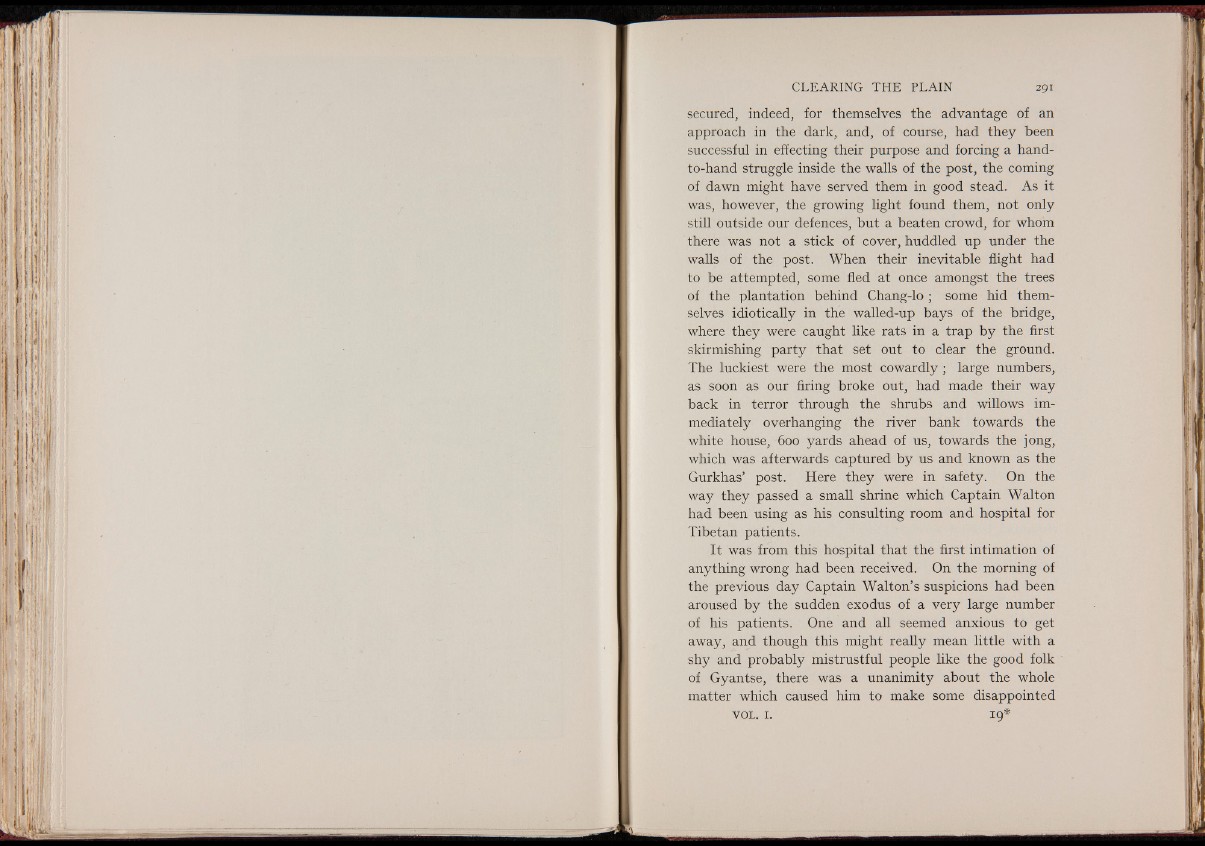
Hü
I
l i
If
ìiijf
111
I
iIrI II
if It I
- f ii
1 II«
vK * mUir?
if If!; rii
I M
l i If
il: if.
H U II
i l i n s ¡1 I: ’ Il
äMI
secured, indeed, for themselves the advantage of an
approach in the dark, and, of course, had they been
successful in effecting their purpose and forcing a hand-
to-hand struggle inside the walls of the post, the coming
of dawn might have served them in good stead. As it
was, however, the growing light found them, not only
still outside our defences, but a beaten crowd, for whom
there was not a stick of cover, huddled up under the
walls of the post. When their inevitable flight had
to be attempted, some fled at once amongst the trees
of the plantation behind Chang-lo ; some hid themselves
idiotically in the walled-up bays of the bridge,
where they were caught like rats in a trap by the first
skirmishing party that set out to clear the ground.
The luckiest were the most cowardly; large numbers,
as soon as our firing broke out, had made their way
back in terror through the shrubs and willows immediately
overhanging the river bank towards the
white house, 600 yards ahead of us, towards the jong,
which was afterwards captured by us and known as the
Gurkhas’ post. Here they were in safety. On the
way they passed a small shrine which Captain Walton
had been using as his consulting room and hospital for
Tibetan patients.
It was from this hospital that the first intimation of
anything wrong had been received. On the morning of
the previous day Captain Walton’s suspicions had been
aroused by the sudden exodus of a very large number
of his patients. One and all seemed anxious to get
away, and though this might really mean little with a
shy and probably mistrustful people like the good folk
of Gyantse, there was a unanimity about the whole
matter which caused him to make some disappointed
v o l . 1 . i g #